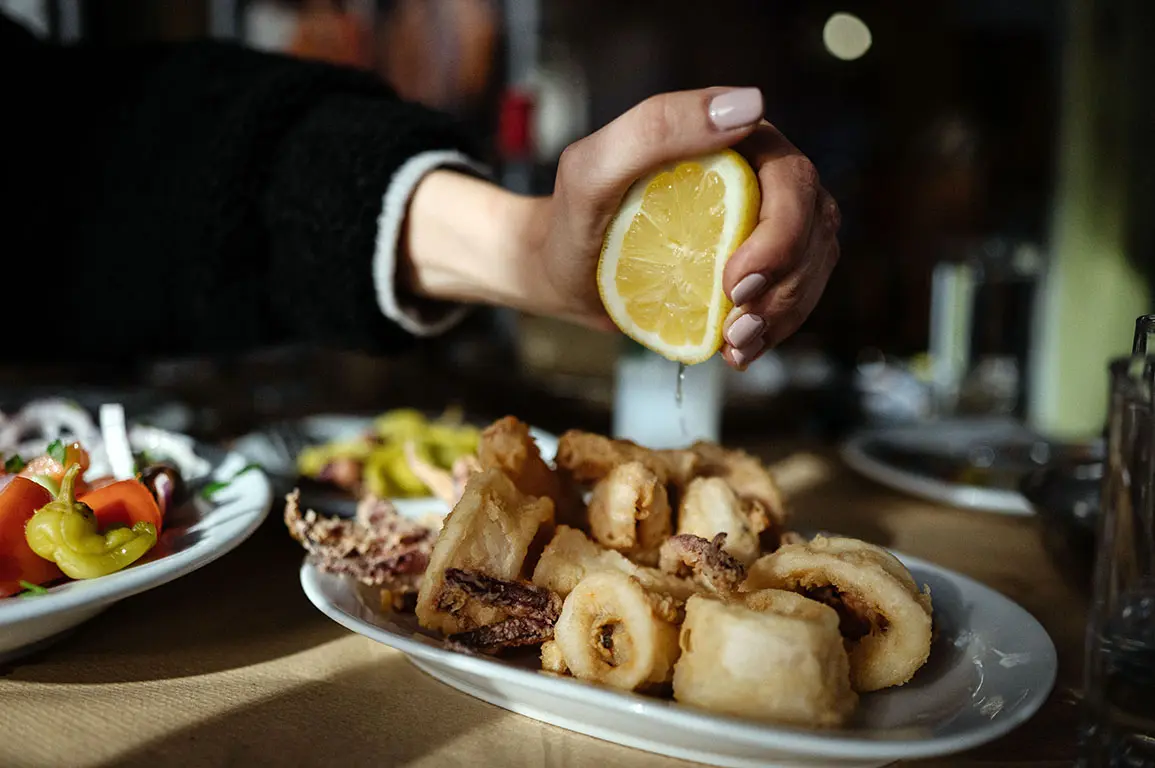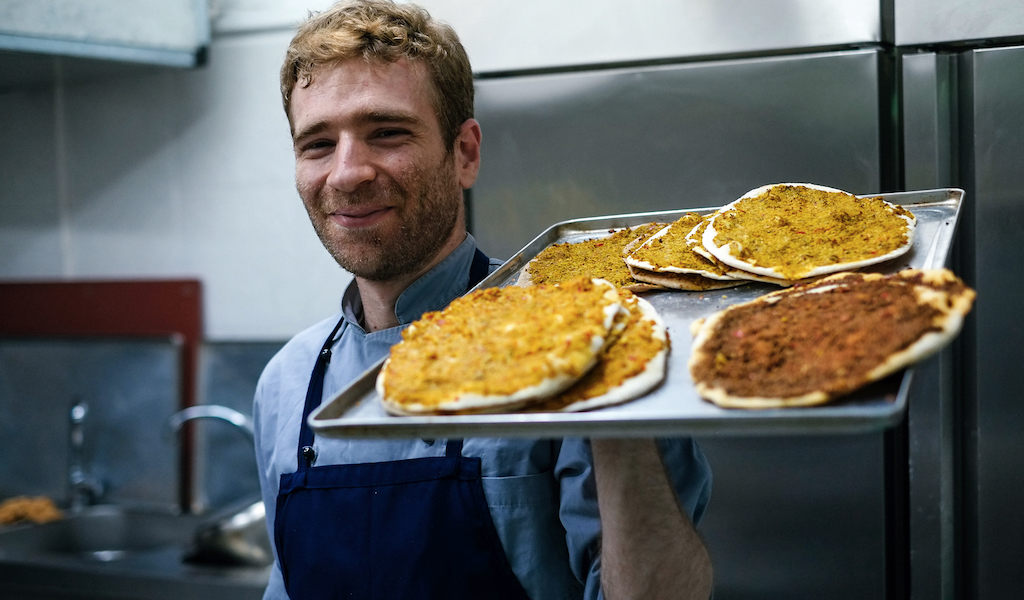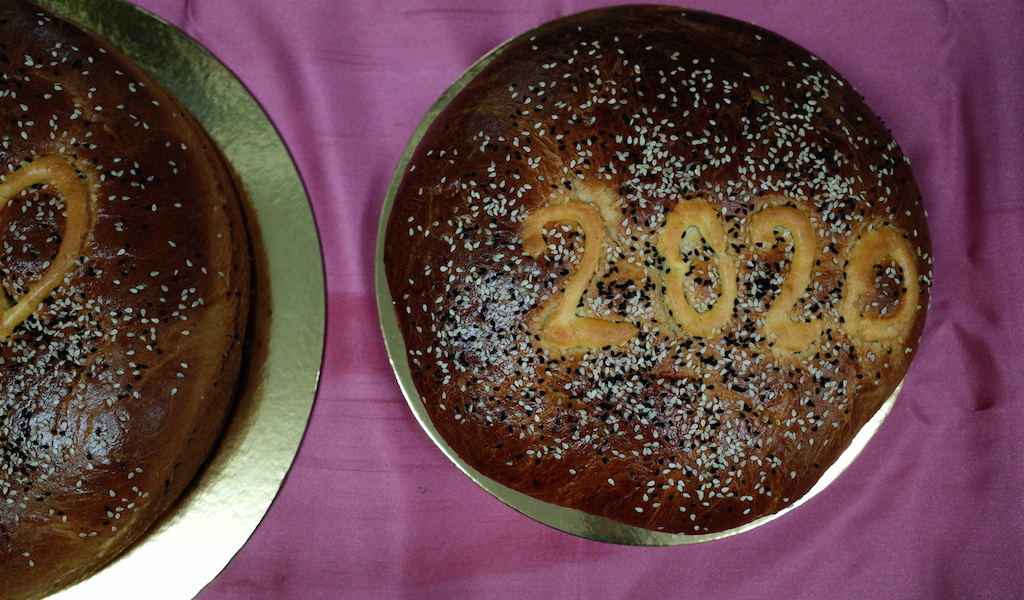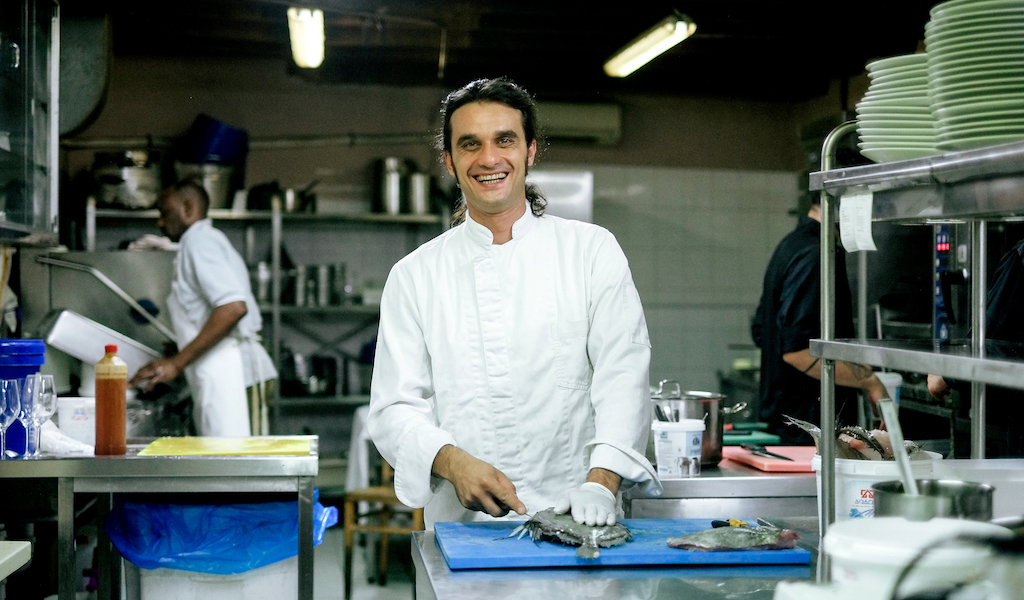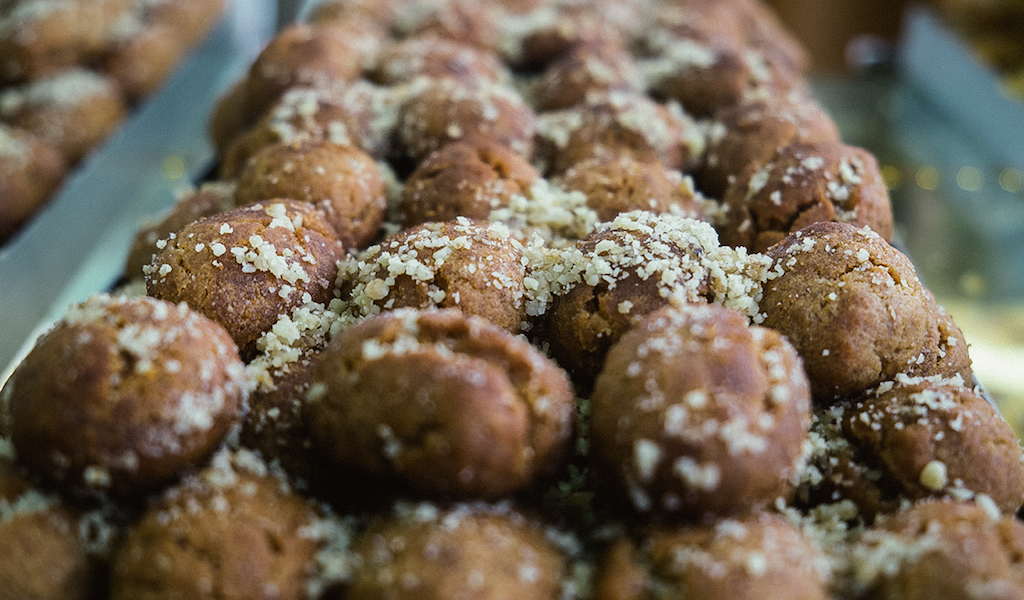We can't find the internet
Attempting to reconnect
Something went wrong!
Hang in there while we get back on track
Search results for "Christiana Thomaidi"
Athens
Vasilopita: A Sweet Tribute to the New Year
Just after the stroke of midnight on New Year’s Eve or on the first day of the New Year, many Greek Orthodox families gather around the table to cut and split the vasilopita, a cake named after St. Basil (Aghios Vasilios), the Greek Santa Claus. The head of the family “crucifies” the cake three times with a knife and then cuts it into triangular pieces. Usually, the first piece is offered to Christ, the second to the Virgin Mary, the third to St. Basil and the fourth to the “house” before family members and friends each receive one. Some may offer a slice to St. Nicholas, the patron of sailors, to the poor, as St. Basil cared for them, or to the family shop or company.
Read moreAthens
Athiri: Rare Elements
On a busy thoroughfare in Keramikos near the bustling neighborhood of Gazi, it’s easy to miss Athiri – but we urge you to keep an eye out for this culinary gem. When we last visited the restaurant, the polite waiters welcomed us with gracious smiles. We chose a table in the verdant courtyard, a small oasis in the heart of Athens. The interior of the restaurant is simple and elegant as well, with modern details to complement the lovely atmosphere. Chef Alexander Kardasis has a personal and modern vision of Greek cuisine and is always striving to create clean flavors with traditional underpinnings. To that end, he’s assembled a collection of the finest raw materials, many of which arrive fresh daily.
Read moreAthens
Melomakarona: For a Sweet (and Crumbly) Christmas
The debate rages on: which are Greece’s best traditional Christmas cookies, kourambiedes or melomakarona? Amongst our friends and family, moist, honey-soaked melomakarona win out over the crumbly, butter-rich almond kourambiedes. The word “melomakarona” is a combination of meli, which means “honey,” and makaronia, which comes from the ancient Greek word makaria (μακαρία), meaning “blessed” (and having nothing to do with the Italian pasta with the Greek name “macaroni”). Long ago, the makaria was a piece of oval-shaped bread made for a funerary dinner to bless the dead. Later on, the makaria was soaked in honey and became known as melomakarono (the singular form of the word; these cookies are also called finikia by some).
Read more